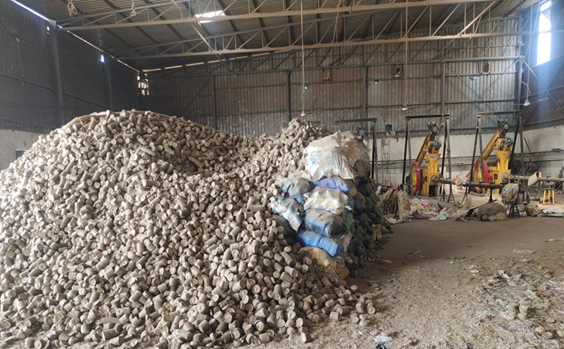New Delhi: The Ministry of New and Renewable Energy (MNRE) has announced a significant revision in the Central Financial Assistance (CFA) rates under the National Bioenergy Programme (NBP), aimed at enhancing the utilization of biomass resources across the country. The updated rates, effective from July 16, 2024, are set to bolster the production of briquettes and pellets, including torrefied pellets, which are critical for advancing sustainable energy solutions.
Biomass, derived from forestry waste, agricultural residue, industrial by-products, and municipal solid waste, plays a crucial role in generating heat and energy. India’s annual biomass production stands at approximately 750 million metric tons (MMT), with 228 MMT classified as surplus. This surplus biomass presents a valuable opportunity for energy production and environmental management.
The NBP, which was notified on November 2, 2022, for the period FY 2021-22 to 2025-26, includes a key component aimed at supporting the manufacturing of briquettes and pellets, as well as promoting biomass-based cogeneration in industries. The CFA for briquette and non-torrefied pellet manufacturing plants was initially set at Rs. 9.0 lakhs per metric ton per hour (MTPH) of production capacity, with a maximum project support limit of Rs. 45.0 lakhs.
With the new revisions, the CFA for non-torrefied pellet manufacturing plants has increased to Rs. 21.0 lakhs per MTPH, with a maximum project support of Rs. 105 lakhs. For torrefied pellet manufacturing plants, the CFA has been set at Rs. 42.0 lakhs per MTPH, with a maximum support of Rs. 210 lakhs or 30% of the capital cost for plant and machinery of a 1 MTPH plant, whichever is lower.
This revision aims to enhance the utilization of biomass resources, particularly in regions heavily reliant on paddy straw, such as Punjab, Haryana, and Uttar Pradesh. By improving the financial support for biomass processing, the initiative seeks to mitigate air quality issues related to stubble burning and promote sustainable agricultural practices.





